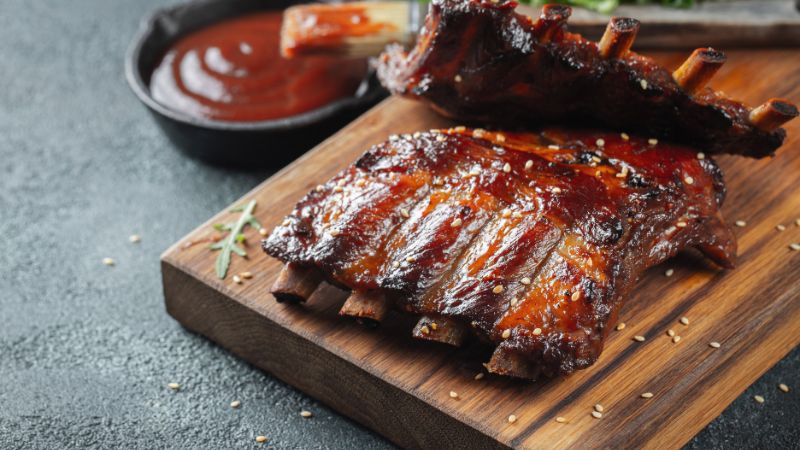Ribs are a favorite dish for many, especially during barbecue season. A common question that arises is whether it's better to boil ribs before cooking them further. This article will explore this method, discussing its pros and cons, and providing tips on how to tell if pork ribs are done, ensuring you serve perfectly cooked ribs every time.
Boiling Ribs: The Basics
Boiling ribs before grilling or baking is a technique used by some cooks. The idea is to tenderize the meat, making it softer and quicker to cook on the grill or in the oven.
How to Boil Ribs:
Fill a large pot with enough water to cover the ribs.
Add flavors like garlic, onion, or bay leaves to the water for extra taste.
Bring the water to a boil, then reduce to a simmer.
Place the ribs in the pot and let them simmer for about 30 minutes.
Pros of Boiling:
Speeds up Cooking Time: Boiling can reduce the grilling or baking time, as it partially cooks the ribs beforehand.
Tenderizes the Meat: It can make tougher cuts of meat more tender.
Even Cooking: Helps in cooking the ribs evenly, reducing the risk of undercooked parts.
Cons of Boiling:
Loss of Flavor: Some argue that boiling can wash away some of the meat's natural flavors.
Texture Changes: The meat might become too soft, losing its desirable texture.
Nutrient Loss: Boiling can lead to a loss of nutrients.
Alternatives to Boiling
If you're not keen on boiling, there are other methods to prepare your ribs before the final cook.
1. Marinating
Marinating involves soaking the ribs in a mixture of spices, herbs, and liquids like vinegar or citrus juice. This not only adds flavor but also tenderizes the meat. Marinate the ribs for several hours or overnight for the best results.
2. Dry Rub
Applying a dry rub of spices and herbs directly to the ribs before cooking can create a flavorful crust. Let the ribs sit with the rub for a few hours to enhance the taste.
3. Slow Cooking
Slow cooking in an oven or a slow cooker can tenderize ribs without losing moisture and flavor. This method requires more time but results in flavorful, tender meat.
Grilling or Baking After Boiling
If you choose to boil your ribs, the next step is to grill or bake them.
Grilling: Gives a smoky flavor and a crispy exterior. Grill the boiled ribs for a short time, just enough to get a nice char, and heat them through.
Baking: For a less smoky flavor, bake the ribs in the oven. This method allows for a controlled cooking environment and can produce tender, flavorful ribs.
How to Tell if Pork Ribs Are Done
Whether you boil your ribs or not, knowing when they are perfectly cooked is crucial. Here are some tips to tell if pork ribs are done:
Meat Shrinks Away from Bones: The meat should shrink back from the ends of the bone by about half an inch.
Tender but Not Falling Apart: The ribs should be tender enough to pull away from the bone with a little resistance. If they are falling apart, they might be overcooked.
Use a Thermometer: The internal temperature should reach 145°F (63°C). This is a safe temperature for pork.
Conclusion
Whether or not to boil ribs before cooking depends on personal preference and the desired outcome. While boiling can speed up the cooking process and ensure even cooking, it may also result in loss of flavor and texture changes. Alternatives like marinating, applying a dry rub, or slow cooking are also great ways to prepare your ribs.
Remember, the key to perfect ribs is not just in how you prepare them, but also in knowing how to tell if pork ribs are done. By following these guidelines, you can enjoy delicious, perfectly cooked ribs that are sure to be a hit at your next barbecue.


